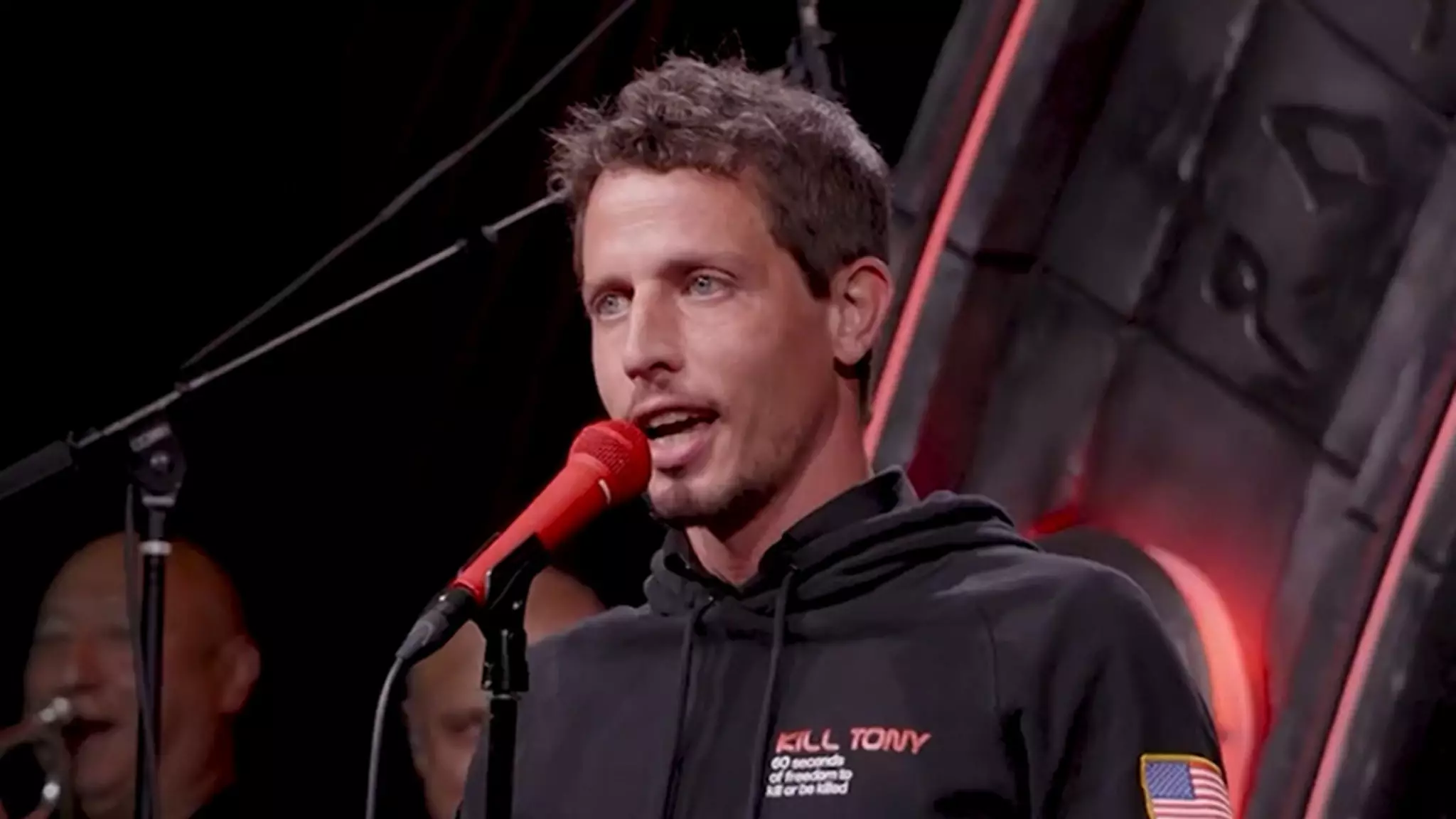In the realm of comedy, the line between humor and insensitivity can be perilously thin. Tony Hinchcliffe, a comedian known for his abrasive style, recently found himself at the center of a storm following a joke made during a Donald Trump rally in Madison Square Garden on October 27. His quip, equating Puerto Rico with a “floating island of garbage,” triggered a wide array of criticism, particularly from political leaders and members of the media. This incident stands as a potent reminder of the responsibilities that accompany comedic performance, especially in politically charged environments.
In a subsequent episode of his podcast, “Kill Tony,” Hinchcliffe responded to the backlash, offering a glimpse into his mindset post-controversy. While he acknowledged the outcry by stating, “I’m currently under attack,” his remarks suggested a defiance rather than remorse. He attempted to redefine his relationship with the Puerto Rican community by declaring admiration for their intelligence and resilience, a classic move in the world of comedy where performers often seek to navigate backlash with humor. However, the sincerity of such statements can be questioned, especially when they follow comments deemed derogatory.
Hinchcliffe’s refusal to apologize to any demographic—”Not to the Puerto Ricans, not to the Whites, not to the Blacks…”—suggests a strategic approach to handling negative feedback that prioritizes maintaining his comedic persona over fostering accountability. By refusing to issue a genuine apology, he raised questions about whether he truly recognizes the impact and context of his comedic choices or merely sees himself as a provocateur benefiting from the controversy.
The significant backlash that Hinchcliffe faced wasn’t merely a reflection of isolated ire; it symbolized a larger concern within the community regarding the role of comedians in societal discourse. His association with Trump—a figure who has historically marginalized Hispanics—compounded allegations that Hinchcliffe’s humor lacked the nuance required to handle sensitive topics. Many critics expressed that jokes about disaster-stricken regions, particularly those still grappling with the aftermath of the Hurricane Maria crisis, can contribute to a harmful narrative.
Moreover, Hinchcliffe’s comedy sets a precarious example for aspiring comedians. The notion that “shocking” jokes are permissible as long as they are cleverly framed only adds a layer of moral ambiguity to the craft. This incident serves as a crucial lesson on the ethical dimensions of humor—encouraging comedians to be cognizant of their audience and the implications of their jokes.
As controversies like Hinchcliffe’s continue to arise in the world of comedy, they offer fertile ground for discussions about boundaries and the power of words. While Hinchcliffe may revel in controversy, the broader comic landscape must grapple with a crucial question: How does one balance the art of comedy with the sensitivity required to address real societal issues? Ultimately, the challenge lies not only in crafting humor but also in ensuring that it uplifts rather than alienates, educating rather than ridiculing. A nuanced approach could pave the way for a more inclusive comedy scene that respects the diversity of its audience.

